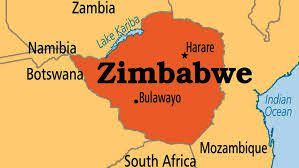As has become tradition, Zimbabweans always look forward to a dosage of state media propaganda about another round of “mega deals” each time President Emmerson Dambudzo Mnangagwa travels outside the country.
Every time Mnangagwa goes on a foreign trip, Zimbabweans have become accustomed to state media headlines such as “More Mega Deals” and “With Love from China”.
The last time ED, as Mnangagwa is affectionately known by his supporters, visited Russia in January 2019 a number of “mega deals” were signed between Russia and Zimbabwe, including two for platinum and diamond mining.
One of these, the Russian-Zimbabwean platinum mining venture Great Dyke Investments (GDI) is yet to start operations and desperately requires a capital injection of more than US$500 million to get the first phase off the ground. GDI is developing a platinum project near Harare.
There are, therefore, no prizes for guessing what the government-run media told long-suffering Zimbabweans following Mnangagwa’s latest foreign trip during which he attended the inaugural Russia-Africa Summit.
“Zim, Russia sign 2 mining MoUs” was the screaming headline in the official Herald daily on Friday.
“NRZ in Russian locomotive, wagon deal” screamed another headline in which the same daily wrote about the National Railways of Zimbabwe is said to have signed an agreement with Union Wagons of Russia for the supply of 70 locomotives and 5,000 railway wagons.
Analysts and government critics are, however, sceptical of these so-called “mega deals” with the Russians and the Chinese, particularly given that there is a disturbing common thread for all of them – they all involve transactions in the extractive sector.
Political analyst Donald Porusingazi is worried that most African countries, Zimbabwe included, are literally giving away the family jewels for a song in their desperation to lure foreign investors.
“Our fear is that the gullible and corrupt African leaders will end up mortgaging the continent’s resources to the Russians and Chinese who are coming to us under the guise of partnership and all-weather friendship,” Porusingazi said.
He added: “We have seen that happening in the case of Zimbabwe where, despite all the hullabaloo about mega deals with the Chinese and Russians, there is nothing to show for it on the ground. Meanwhile, the mortgaged resources are being shipped away for a song.”
The analyst said judging by the type of deals that are being signed, “the Russians have joined the bandwagon and are after Africa’s mineral resources.”
“One prays that our leaders are alive to the fact that the Russians and Chinese are modern-day imperialists who are only after one thing – a slice of Africa’s rich mineral and other natural resources,” he said.
Opposition Movement for Democratic Change deputy president Tendai Biti said Zimbabwe is unlikely to get any viable business deals out of Russia, due to lack of trust of Harare’s leadership.
“Since 2017 we’ve been hearing about these mega deals, mega deals, mega billions, but nothing has come out of them because there are trust issues and confidence issues,” Biti told journalists.
A major challenge for Zimbabwe is the transparency of most of the so-called mega deals so far signed with the Russians and Chinese.
Most of them have been shady and have involved businesspersons linked to the Harare establishment. A classic example is the GDI platinum project whose Zimbabwean shareholder is a company linked to fuel tycoon Kudakwashe Tagwireyi, one of Mnangagwa’s cronies.
JN/APA


